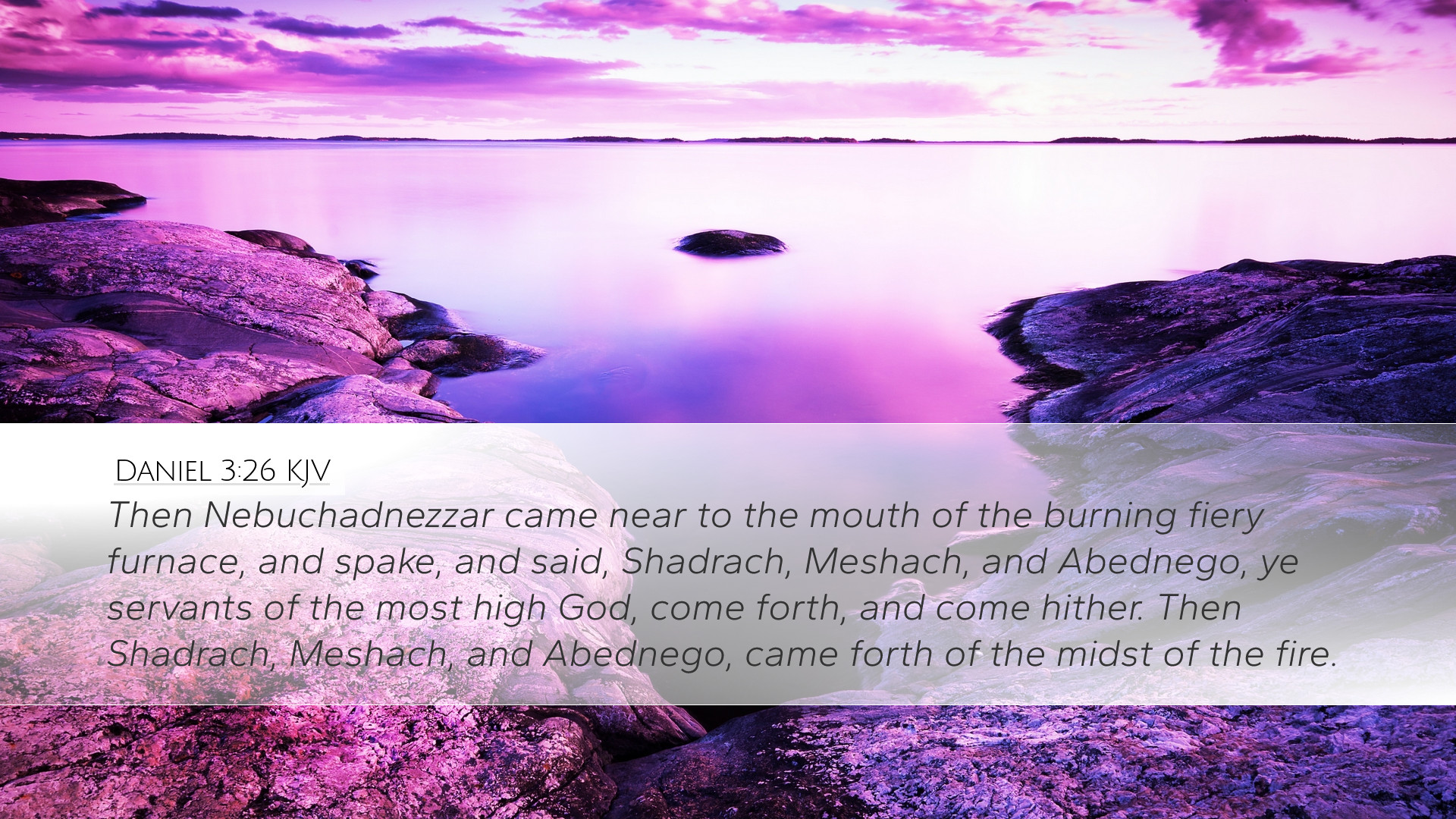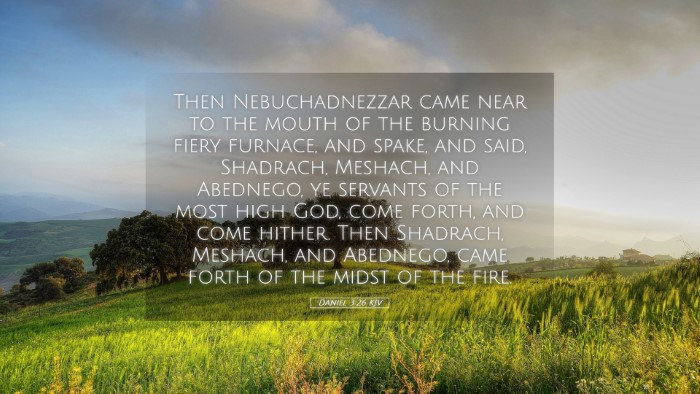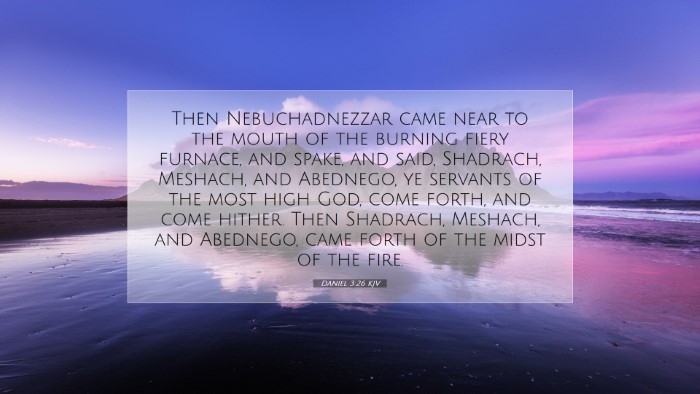Commentary on Daniel 3:26
Daniel 3:26 states: "Then Nebuchadnezzar came near to the mouth of the burning fiery furnace, and spake, and said, Shadrach, Meshach, and Abednego, ye servants of the most high God, come forth, and come hither." This verse encapsulates a moment of divine intervention, speaking volumes about faith, deliverance, and divine presence in the midst of trial.
Contextual Background
The context of this verse is pivotal. Shadrach, Meshach, and Abednego were three Hebrew men who refused to bow to the golden statue erected by King Nebuchadnezzar. Their steadfast faith culminated in their being thrown into a fiery furnace, a punishment for their belief. The background of Babylonian captivity and the pressure of conformity are significant as they relate to the overarching themes of courage and faith in God.
Theological Insights
This passage highlights several profound theological themes:
- The Sovereignty of God: Nebuchadnezzar's acknowledgment of the "most high God" is crucial. It demonstrates that even a pagan king could recognize divine authority, illustrating the ultimate sovereignty of God over all earthly powers.
- Faith in Trials: The faith of Shadrach, Meshach, and Abednego is a focal point. Their refusal to comply with the king’s edict, even in the face of death, exemplifies unwavering faith. As illustrated in Adam Clarke's commentary, their actions are a testament to the strength that faith provides during extreme tribulations.
- Divine Presence and Protection: The miraculous survival of these men in the furnace reflects God’s protective nature. This moment is often seen as a typological foreshadowing of Christ’s presence, akin to the figure who walked with them in the fire, representing God’s faithful presence in adversity, as noted by Matthew Henry.
Commentary Analysis
According to Matthew Henry, this verse marks a significant shift in Nebuchadnezzar’s perspective; he transitions from a tyrannical ruler to a man who recognizes the power of the living God. Henry emphasizes the king's desperation, illustrating that trials can lead even the proudest rulers to seek divine assistance.
Albert Barnes delineates the miracle of survival within the furnace, expounding that the fire represented the trials of the world, while God’s deliverance symbolizes His ability to bring forth miracles amidst the most dire situations. Barnes highlights that these trials are not only for those suffering but also serve as a testimony to witnesses, influencing those surrounding them.
Adam Clarke delves deep into the character of the three Hebrew boys. He notes how their faith was not just personal but communal; as they stood together, they exemplified unity in faith. This illustrates the biblical principle that believers are called to support one another, especially in challenging times.
Practical Applications
This passage offers several practical insights for pastors, students, and theologians:
- Encouragement in Adversity: Believers are called to remain steadfast in their faith despite societal pressures. Like Shadrach, Meshach, and Abednego, Christians are encouraged to stand firm and trust in God’s deliverance.
- Witnessing to the World: The radical faith of these three men serves as a model for how believers can operate as witnesses in a secular society. Their actions and the miraculous outcome pointed others to recognize the power of the true God.
- Reassurance of God’s Presence: The divine intervention in the furnace illustrates the assurance that God is with those who are faithful to Him. This can provide hope to individuals facing persecution or trials.
Conclusion
Daniel 3:26 is rich with theological depth and practical implications. It serves as a profound reminder of the sovereignty of God, the power of faith in trials, and the assurance of divine presence even in the most challenging circumstances. As we reflect upon this verse, may we find inspiration and courage to uphold our faith, just as Shadrach, Meshach, and Abednego did, while being mindful of the witnessing opportunity that arises in the fire of our challenges.
Further Reflections
As pastors and scholars delve deeper into this scripture, it prompts further reflection on how we, too, might find ourselves in 'fiery furnaces.' Are there modern-day equivalent trials that challenge our obedience to God? How can we build a community that supports and strengthens each other's faith?


